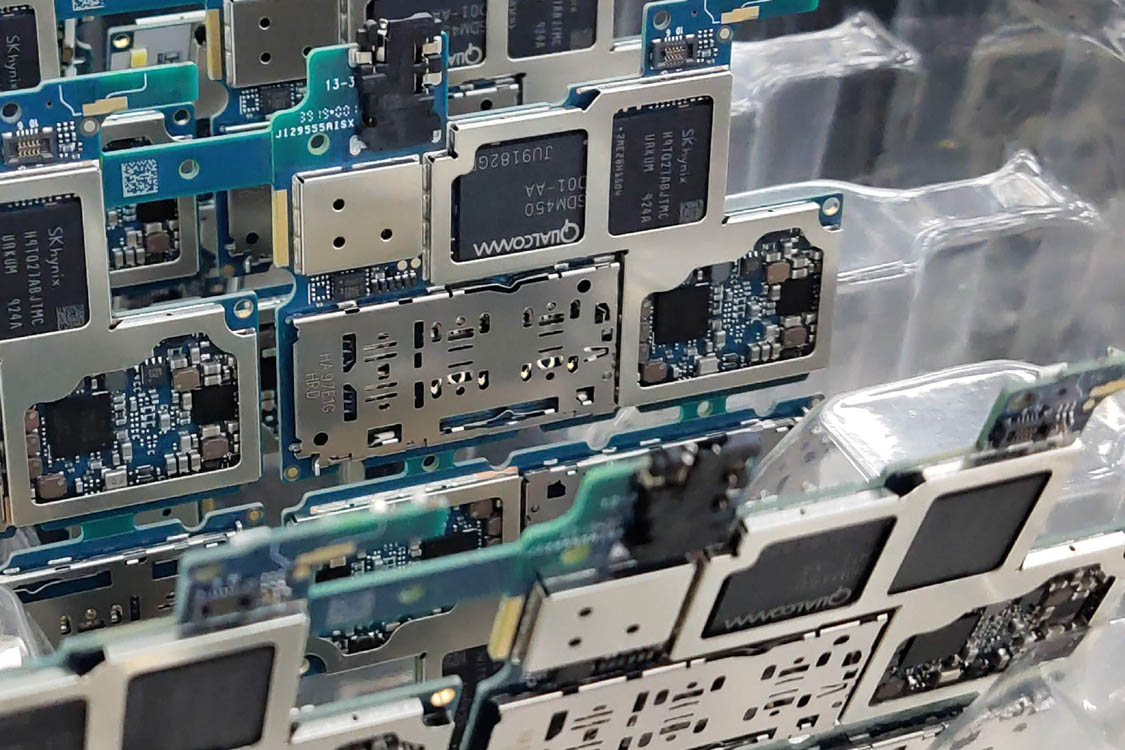1.7M
1. Eco-Friendly Materials:
- Recycled Materials: Manufacturers are incorporating recycled materials into mobile devices to reduce the demand for new resources. This includes recycled plastics, metals, and other components.
- Bio-Based Plastics: Some companies are exploring the use of bio-based plastics derived from renewable sources, such as corn or sugarcane, as alternatives to traditional petroleum-based plastics.
- Sustainable Packaging: Manufacturers are adopting sustainable packaging materials, reducing the use of single-use plastics, and designing packaging that is more environmentally friendly.
2. Recycling Initiatives:
- Take-Back Programs: Many mobile manufacturers offer take-back programs, allowing users to return their old devices for recycling. This helps prevent electronic waste from ending up in landfills.
- Circular Economy Models: Some companies are adopting circular economy models, where components from old devices are refurbished or recycled to create new products. This reduces the need for extracting new raw materials.
3. Energy Efficiency:
- Energy-Efficient Manufacturing: Mobile manufacturers are implementing energy-efficient practices in their production processes, including the use of renewable energy sources in manufacturing facilities.
- Energy-Efficient Devices: Improving the energy efficiency of mobile devices helps reduce their environmental impact during the usage phase. This includes optimizing hardware and software for energy conservation.
4. Extended Product Lifespan:
- Modular Design: Some manufacturers are adopting modular design principles, allowing users to easily replace or upgrade specific components of their devices. This extends the overall lifespan of the product.
- Software Updates: Regular software updates not only enhance the functionality of devices but also help extend their useful life by ensuring compatibility with new applications and services.
5. Reducing Electronic Waste:
- E-Waste Management: Mobile manufacturers are increasingly focusing on responsible e-waste management. This includes proper disposal and recycling of electronic components to minimize the environmental impact of discarded devices.
- Design for Disassembly: Designing devices with disassembly in mind makes it easier to recover valuable materials during the recycling process.
6. Certifications and Standards:
- Eco-Certifications: Manufacturers are pursuing eco-certifications such as EPEAT (Electronic Product Environmental Assessment Tool) to demonstrate their commitment to environmental sustainability.
- Compliance with Standards: Adhering to international environmental standards ensures that mobile devices meet specific criteria for sustainability and environmental impact.
7. Collaborations and Industry Initiatives:
- Partnerships for Sustainability: Mobile manufacturers are collaborating with environmental organizations, non-profits, and other industry players to share best practices and develop joint initiatives for sustainability.
- Industry-wide Commitments: Some companies participate in industry-wide commitments, such as the GSMA's Green Manifesto, which outlines environmental goals and principles for the mobile industry.
8. Transparent Reporting:
- Environmental Reporting: Many mobile manufacturers are transparently reporting on their environmental practices, impact assessments, and progress toward sustainability goals. This fosters accountability and allows consumers to make informed choices.
9. Innovation in Sustainable Technologies:
- Alternative Materials: Ongoing research explores alternative, sustainable materials for mobile devices, including materials that are biodegradable or have a lower environmental footprint.
- Green Technologies: Manufacturers are investing in green technologies, such as energy-efficient processors and display technologies, to reduce the environmental impact of device manufacturing and usage.
10. Consumer Education:
- Promoting Responsible Use: Mobile manufacturers are educating consumers about responsible device use, including proper disposal methods, the importance of recycling, and the impact of electronic waste on the environment.
The mobile industry's commitment to sustainability is an evolving process, and continuous efforts are being made to adopt greener practices throughout the entire product lifecycle. As consumer awareness grows, the industry is likely to see further innovation and collaboration to address environmental concerns and promote sustainable practices in mobile manufacturing.




Comments (0)